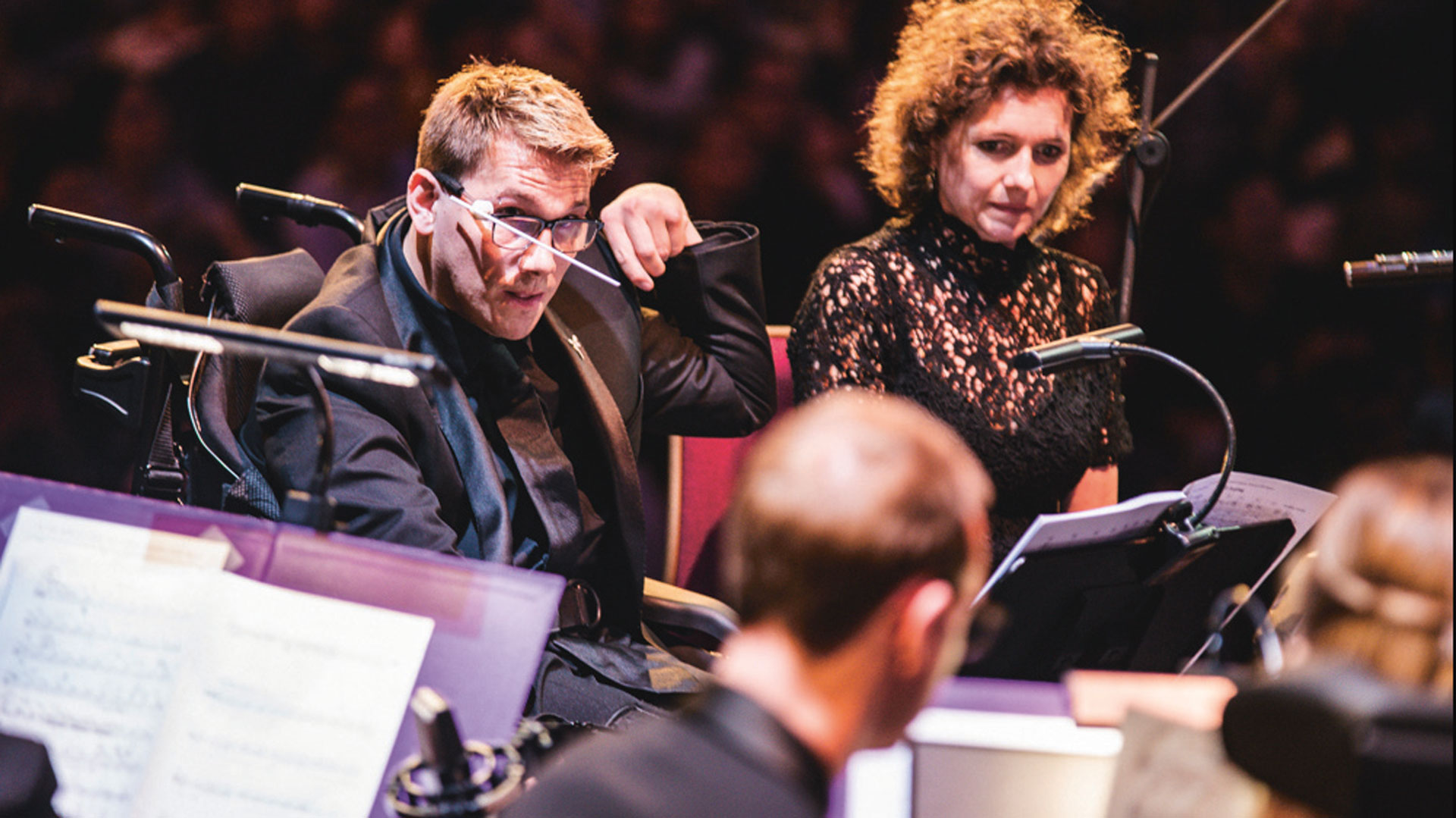The conductor raised his baton and the ensemble responded, filling the Royal Albert Hall (RAH) with the goosebump-inducing second movement from Alexander Campkin’s new works Trembling and Hoping, “lingering, flying – hoping”, a musical representation of the composer’s experience of multiple sclerosis. The title of the piece recalls the poem by Alexander Pope and those words, along with the music, encourage quiet retrospection among some while others call out and move to the music. At other concerts the more visceral responses may have raised eyebrows among other attendees. But this is the BBC Relaxed Prom and concert-goers are encouraged to listen, think, feel and dance in whichever form they like.
The baton deftly flicked; a bow moved across cello strings. A vibraphone solo passesd the melody to other instrumentalists in the orchestra. Conductor James Rose neatly brought the BSO Resound together. His technique is unusual – the baton is attached to his glasses. Rose has cerebral palsy which affects control of his arms and so has designed a lightweight head baton. Rose’s ensemble is part of the Bournemouth Symphony Orchestra (BSO), who also performed at the Prom, conducted by Sian Edwards. The BSO Resound is thought to be one of the world’s first disabled-led music groups, and the level of musicianship on display at the RAH was highly impressive. The event also included a sign language poet, sign language interpreter and picture communication symbols. This was the second year the Proms has included this widely accessible concert – particularly aimed at children and adults with autism, sensory and communication impairments and learning disabilities, as well as individuals who are deaf, hard of hearing, blind and partially sighted. Judging by the success of its latest instalment, it looks like the concert is set to become a proms staple.
Disabled-led ensembles were once virtually unheard of, but progress is in the air
For many years, Rose struggled to find ways of making music conventionally. He joined the BSO last summer on an 18-month conductor traineeship certified by Trinity Laban Conservatoire of Music and Dance, a tailor-made programme funded by Arts Council England’s Change Makers scheme, which led to the creation of BSO Resound. At that time, disabled-led ensembles were virtually unheard of, but progress is in the air: the Royal Northern Sinfonia (RNS) is celebrating its 60th anniversary with the launch of another new ensemble comprising disabled and non-disabled musicians, who will perform together on September 22 at Sage Gateshead.
The concert – RNS Moves – includes specially commissioned works by composers Adrian Lee and Agustín Fernández, and a reimagining of Vivaldi’s Four Seasons that includes harp, electric guitar, saxophone and Headspace, a breath-controlled electronic instrument. Other RNS birthday celebrations include RNS Rocks, where the orchestra will join forces with some of the north-east’s best-known indie-rock artists, Maxïmo Park and Field Music, and The Big RNS Birthday Gala, which takes place on September 23, featuring works from Beethoven, Mozart, Prokofiev, Haydn and more.
RNS Moves takes place on September 22 in Sage Two, Gateshead









